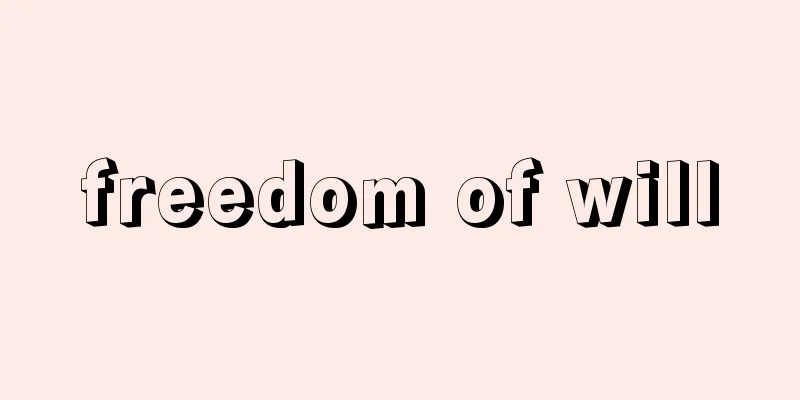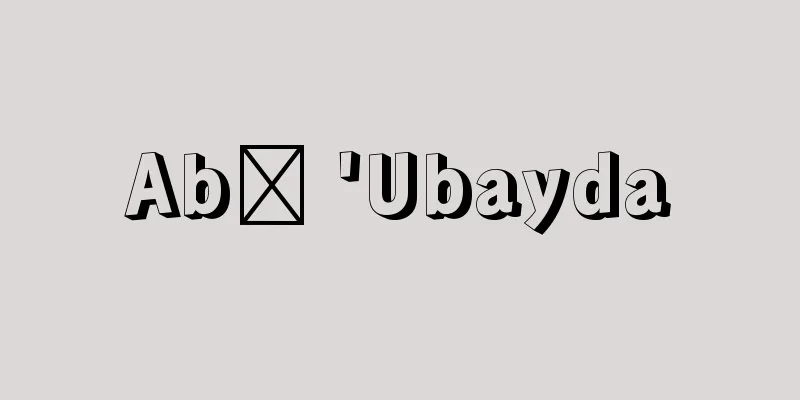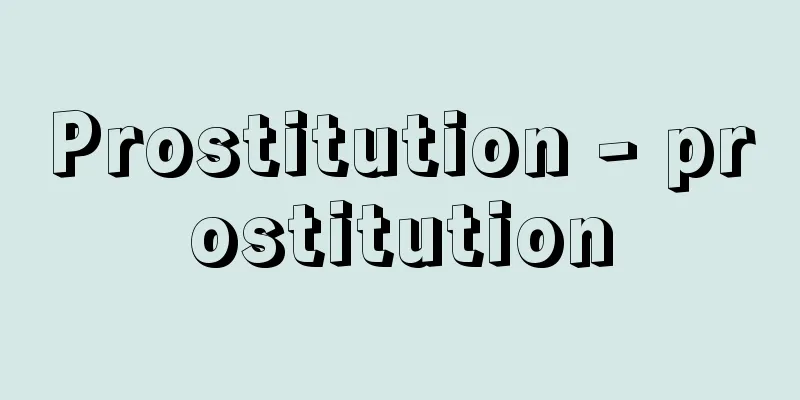freedom of will

|
…Generally, it refers to the state of the will that can choose to act voluntarily without being subject to external coercion, control, or constraint, and is also called “freedom of the will.” In “The Myth of Er” in Book 10 of “The Republic,” Plato stated that humans have the ability to choose their fate after death, and that the content of that fate is determined by their moral actions, but on the other hand, he also said that humans are “playthings” of the gods. *Some terminology explanations that mention "freedom of will" are listed below. Source | Heibonsha World Encyclopedia 2nd Edition | Information |
|
…一般に,外的な強制・支配・拘束を受けず,自発的に行為を選択することのできる意志のあり方をいい,〈意志の自由freedom of will〉ともいう。プラトンは《国家》第10巻の〈エルの神話〉のなかで,人間には死後の運命に対する選択の余地があり,その内容は道徳的行為によってきまると述べたが,他方人間は神の〈遊び道具〉であるともいっている。… ※「freedom of will」について言及している用語解説の一部を掲載しています。 出典|株式会社平凡社世界大百科事典 第2版について | 情報 |
Recommend
Equal rhyme diagram - Touinzu (English spelling)
A syllable table from ancient China. It is also ca...
Hassuna
...This culture was established as a type from la...
Agni Chakra
…Two more chakras are usually counted. One is the...
White, Pearl (English spelling) WhitePearl
…American serials were linked to newspaper fictio...
Synovial fluid
It is a type of tissue fluid present in the joint ...
Sines
The industrial areas are concentrated along the c...
Masanobu Okumura
An ukiyo-e artist from the mid-Edo period. He was...
Deer Dance - Shishiodori
This is a solo lion dance found in Miyagi and Iwa...
Grass trimmer - Grass trimmer
...Also known as grasshopper (illustration). A sm...
Free trade area
A regional alliance is a group of two or more cou...
Nuclear battery - genshiryokudenchi
A device that converts the radiation energy emitt...
Auric, G. (English spelling) AuricG
…As in the second period, there was a lot of cont...
Hulu
…All major national institutions are concentrated...
Hospital - in
[1]① A large house surrounded by a fence or wall. ...
'Abd Allāh b.sa'd (English spelling) AbdAllahbsad
…[Jiro Kondo] In the 7th century, when the Muslim...



![Nishiarie [town] - Nishiarie](/upload/images/67cc6c63e617e.webp)





